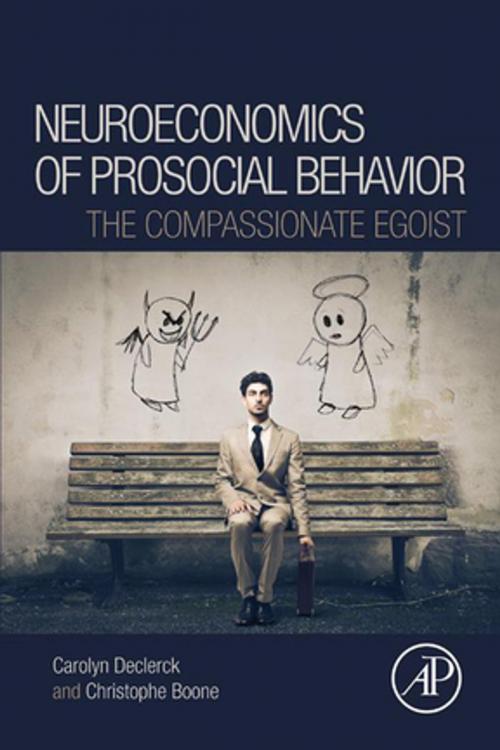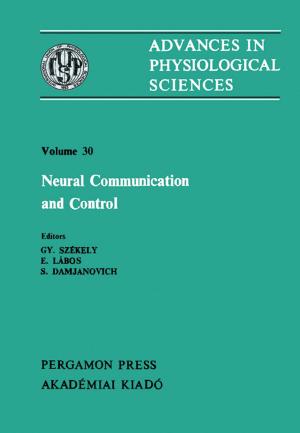Neuroeconomics of Prosocial Behavior
The Compassionate Egoist
Nonfiction, Health & Well Being, Psychology, Neuropsychology, Social Psychology| Author: | Carolyn Declerck, Christophe Boone | ISBN: | 9780128014417 |
| Publisher: | Elsevier Science | Publication: | August 21, 2015 |
| Imprint: | Academic Press | Language: | English |
| Author: | Carolyn Declerck, Christophe Boone |
| ISBN: | 9780128014417 |
| Publisher: | Elsevier Science |
| Publication: | August 21, 2015 |
| Imprint: | Academic Press |
| Language: | English |
This summary of recent research in neuroeconomics aims to explain how and why a person can sometimes be generous, helpful, and cooperative, yet other times behave in a self-interested and/or exploitative manner. The book explains a dual process of analysis measuring immediate needs of the individual, relative to long term gains possible through prosocial behavior (e.g. synergy, accumulating profits, (in)direct reciprocity) with the output further mitigated by the motivation of the individual at that moment and any special circumstances of the environment. Ultimately it can be shown that prosocial behavior can be economically rational. Yet even when individuals are intrinsically motivated to act prosocially, they are also able to reverse this behavior when they sense it is no longer adaptive.
The book will further explore individual differences in prosocial behavior, the development of prosocial behavior, and how a personal neural signature forms that facilitates or hampers cooperation. The book includes game theory research, neuroimaging studies, and research in traditional cognitive psychology to better understand human decision-making re prosocial behavior. This will be of interest to cognitive, developmental, and social psychologists, as well as neuroscientists, and behavioral economists.
- Explores: Individual differences in prosocial behavior, The development of prosocial behavior, How a personal neural signature forms that facilitates or hampers cooperation
- Includes: Game theory research, Neuroimaging studies, Research in traditional cognitive psychology
This summary of recent research in neuroeconomics aims to explain how and why a person can sometimes be generous, helpful, and cooperative, yet other times behave in a self-interested and/or exploitative manner. The book explains a dual process of analysis measuring immediate needs of the individual, relative to long term gains possible through prosocial behavior (e.g. synergy, accumulating profits, (in)direct reciprocity) with the output further mitigated by the motivation of the individual at that moment and any special circumstances of the environment. Ultimately it can be shown that prosocial behavior can be economically rational. Yet even when individuals are intrinsically motivated to act prosocially, they are also able to reverse this behavior when they sense it is no longer adaptive.
The book will further explore individual differences in prosocial behavior, the development of prosocial behavior, and how a personal neural signature forms that facilitates or hampers cooperation. The book includes game theory research, neuroimaging studies, and research in traditional cognitive psychology to better understand human decision-making re prosocial behavior. This will be of interest to cognitive, developmental, and social psychologists, as well as neuroscientists, and behavioral economists.
- Explores: Individual differences in prosocial behavior, The development of prosocial behavior, How a personal neural signature forms that facilitates or hampers cooperation
- Includes: Game theory research, Neuroimaging studies, Research in traditional cognitive psychology















